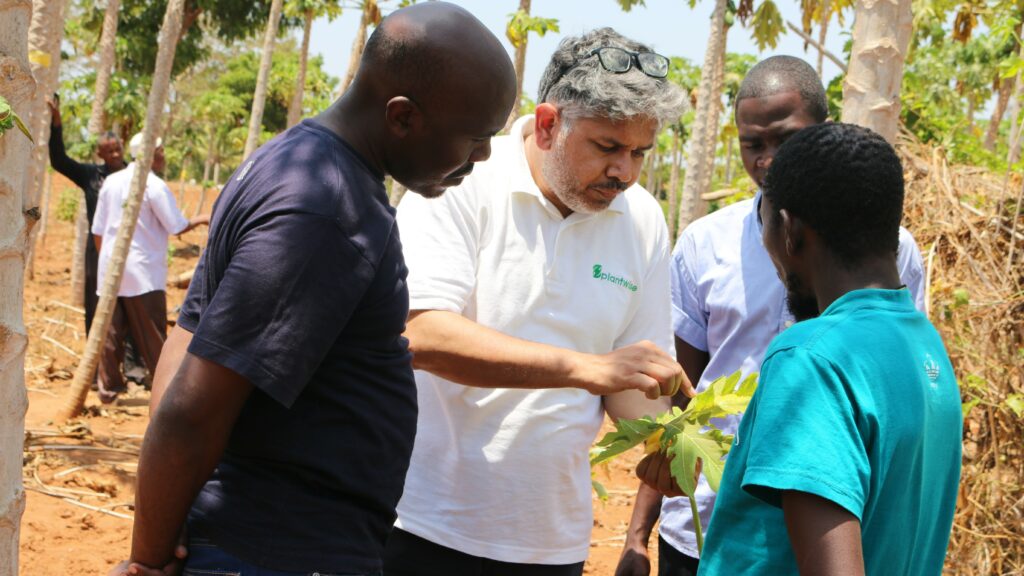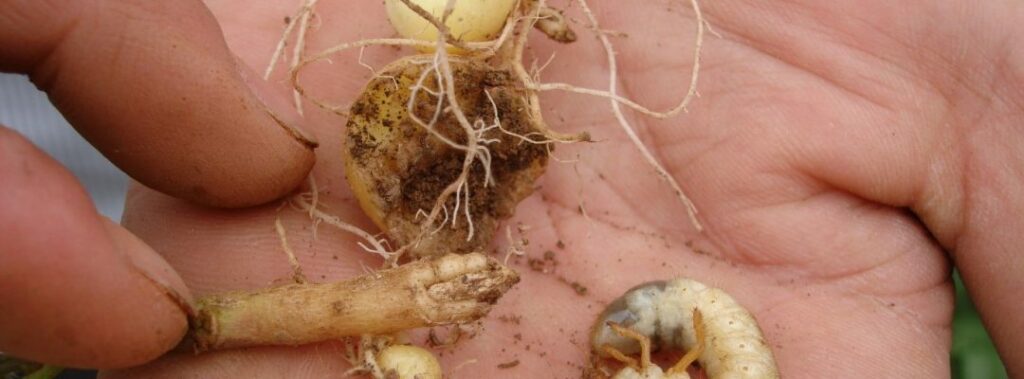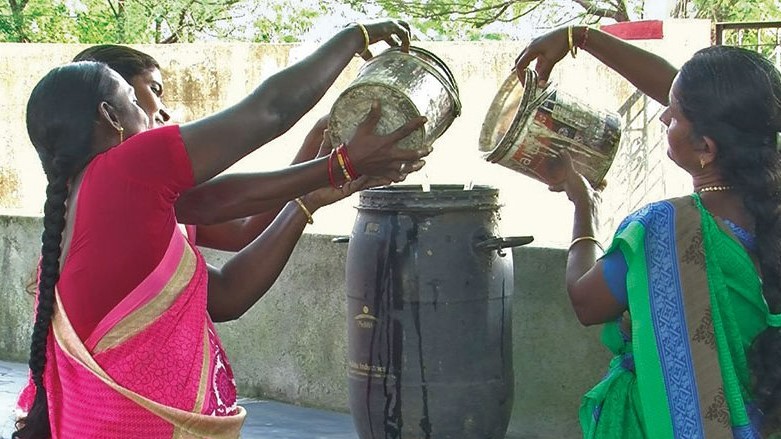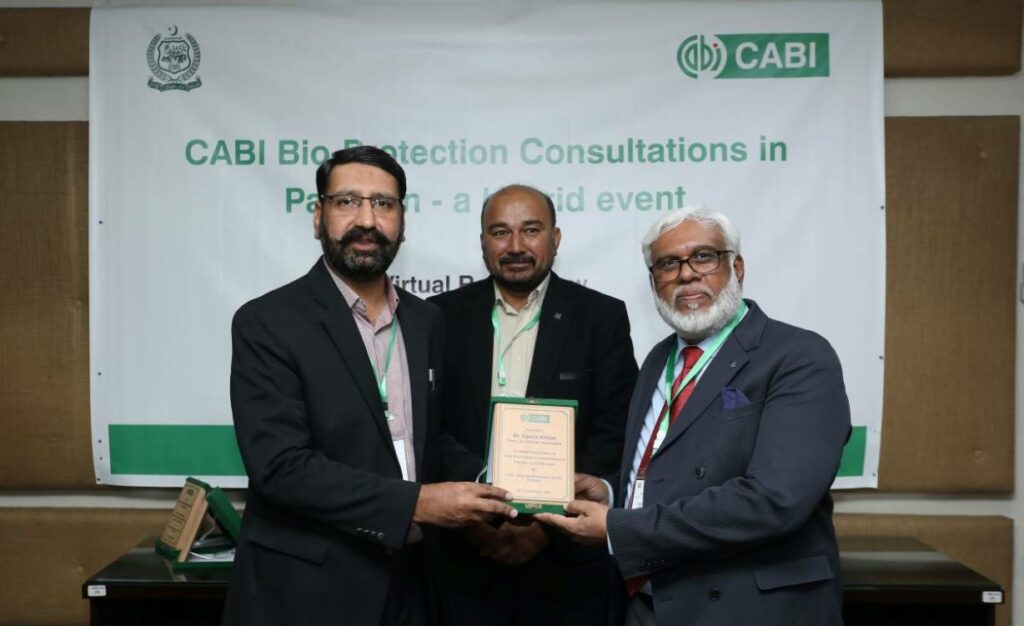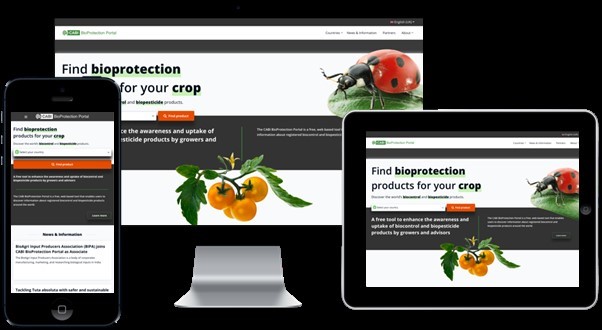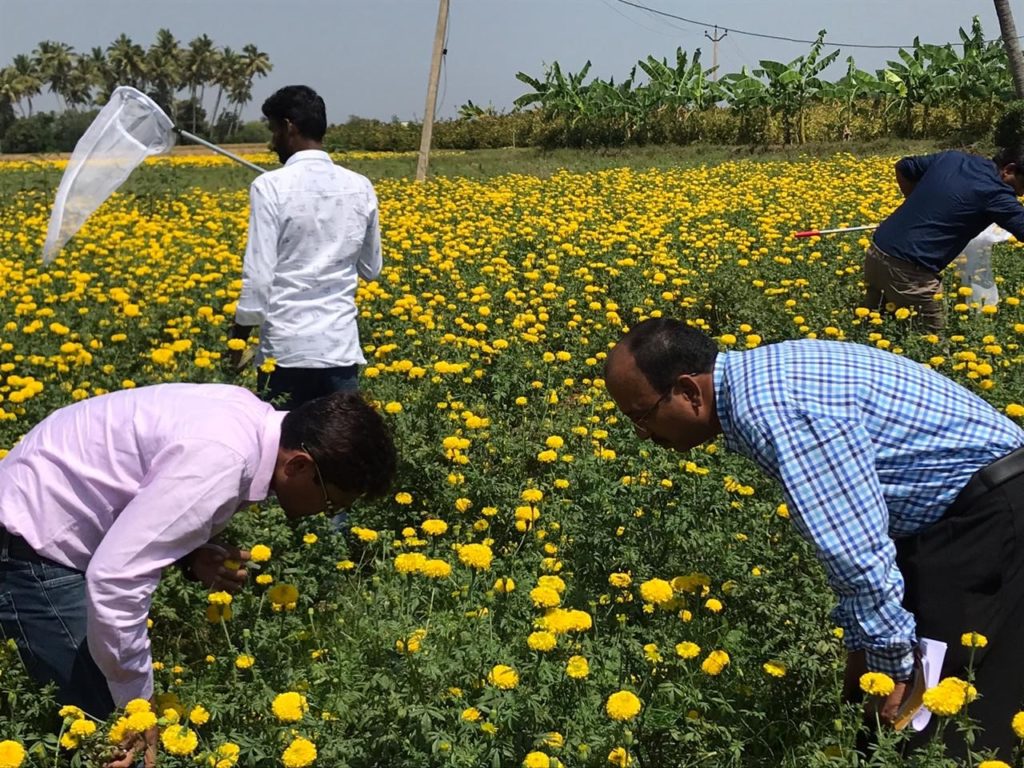Mass rearing training strengthens papaya mealybug biocontrol programme in Kenya
PlantwisePlus has been working in collaboration with partners in Kenya to implement a classical biological control strategy to manage papaya mealybug (Paracoccus marginatus). The invasive pest has been devastating papaya crops in Kenya. A CABI study in 2019 found it caused an estimated 57% yield losses across five counties.
Selecting the right biopesticide or biocontrol product for your needs
This article was originally published on the CABI BioProtection Portal blog. Visit the original blog post here. Choosing a biopesticide or biocontrol product for managing a pest is about asking the right questions. Below we have compiled a simple list that will help you make the right choice, with the CABI BioProtection Portal to support and guide you.
How Plantwise plant clinics supported a women-led cottage industry in India
In 2003, twelve women in Chokkalingam Puddur village started a local biocontrol agent production unit. The Ellya Thendral women self-help group produced and marketed five different types of fungal biopesticides. Their cottage industry received a boost when a Plantwise plant clinic was established in their village. CABI’s Plantwise programme partnered with M S Swaminathan Research…
Bio-protection roadshow promotes low-risk plant protection products in Pakistan
Agriculture continues to face new and complex challenges. Not only do these affect agricultural production, but also basic and applied agricultural research and education. One key area of concern is the increasing threat from plant pests and diseases, made worse by climate change and environmental degradation. Farmers often turn to chemical pesticides to protect their…
BioProtection Portal benefits showcased at BioProtection Day conference
CABI has showcased the benefits of the CABI BioProtection Portal during a special Bioprotection Day conference in Brazil held virtually in collaboration with Embrapa Soja the Brazilian Agricultural Research Corporation. The CABI BioProtection Portal is a free web-based tool that enables users to discover information about registered biocontrol and biopesticide products around the world and…
PlantwisePlus: safer plant protection products
Dr Belinda Luke is one of the Global Team Leaders for CABI’s new flagship programme PlantwisePlus. Her role within the programme is to oversee the development of local production and distribution systems, for less harmful, biological plant protection products.
Transforming farmers and plant doctors into pest-smart agents in their communities
By Sathis Sri Thanarajoo. Reblogged from the CGIAR research program on Climate Change, Agriculture and Food Security blog. Pest-Smart program aims to increase the awareness of farmers on alternative pest-related practices and enhance the capacity of plant doctors in dealing with pests and diseases. Farmers and plant doctors in Ekxang Climate-Smart Village (CSV) in Laos were trained…
Swapping Pesticides with Beetles Could Put Money in Farmers' Pockets
By Wei Zhang. Reblogged from Agrilinks. Every time you see a ladybug—also known as the ladybird beetle—you should tuck it in your wallet as a lucky charm to bring prosperity, according to the folklore of many countries. There’s a grain of truth in the old stories. Research shows that each ladybird in a cotton field in…
CABI joins Koppert to reduce the reliance on chemical use in pest management in Kenya
CABI has initiated activities with Koppert Biological Systems to increase the fight against crop pests and diseases which threaten the food security and livelihoods of thousands of farmers and their families in Kenya. CABI has signed a collaboration agreement with Koppert to deliver more Plantwise plant doctor training in Kenya, with funding from the Koppert Foundation. This includes plans to…
- « Previous
- 1
- 2
- 3
- 4
- Next »

